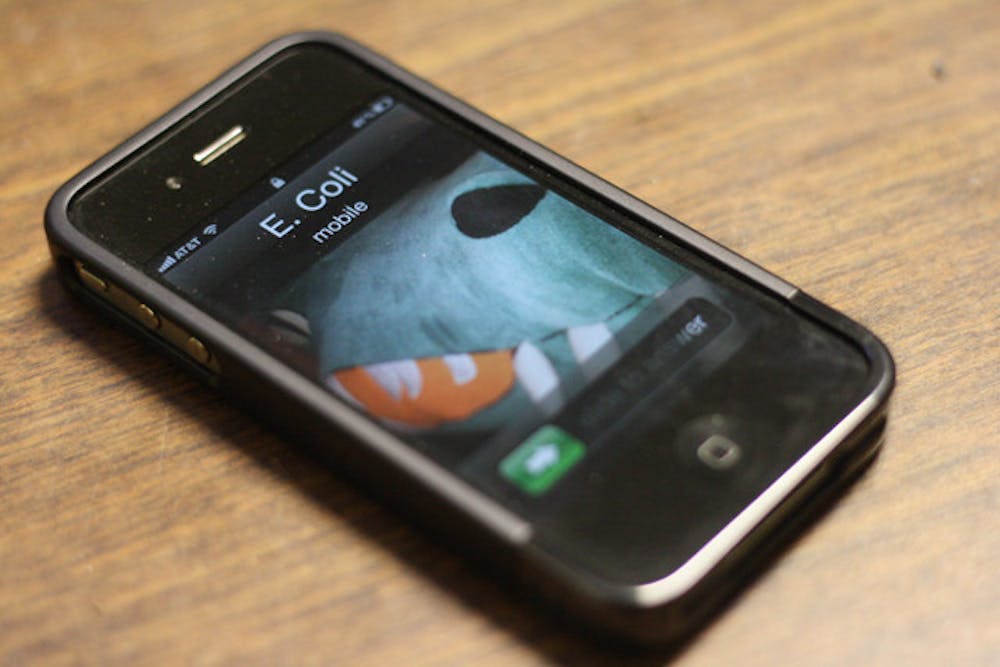History junior Liz McNeill uses her MacBook and BlackBerry to check emails and to send about 30 text messages every day.
She also wipes her laptop's keyboard every two weeks with baby wipes.
"I'm actually, like, a clean freak," she said.
Keeping It Kleen, a public awareness campaign that educates the public on food safety and hygiene, posted an online infographic Wednesday stating that 16 percent of all cellphones contain feces, which harbors the E.coli bacteria.
"That is disgusting," said McNeill, 20.
The information was based on a study conducted by researchers in England that focused on 390 samples of volunteers' cellphones, according to an Oct. 14 USA Today article.
Jorge A. Girón, associate professor in the department of molecular genetics and microbiology at UF, said it's not surprising to find out that E. coli exists on cellphones. Girón said the bacteria can be found on door knobs, handrails and even elevator buttons.
"Everything we touch has feces," he said.
Girón blames this on the lack of good hygiene practices among the general public.
"It tells us that people aren't washing their hands," he said.
Despite these statistics, Girón said the strands of E. coli that exist on phones and other surfaces are harmless. Other strands of E. coli, on the other hand, can mutate and cause disease when ingested with tainted food.
According to the Keeping It Kleen website, people can clean their phones by using Clorox wipes, rubbing alcohol with soft tissue and using household sanitizing wipes.
Girón said the most basic solution is for people to practice good hygiene by washing their hands after going to the bathroom.
Classical studies sophomore Theos Rizos, 19, said he is aware of the bacteria around him but admitted he wouldn't change his daily routine.
"I'm not too concerned," he said. "I have a pretty good immune system."
Referring to her BlackBerry, McNeill said she doesn't plan on changing how much she uses it.
"I would probably sanitize it more," she said.
A study conducted by researchers in England found that 16 percent of cellphones have feces on their surfaces, which harbor the E.coli bacteria.






